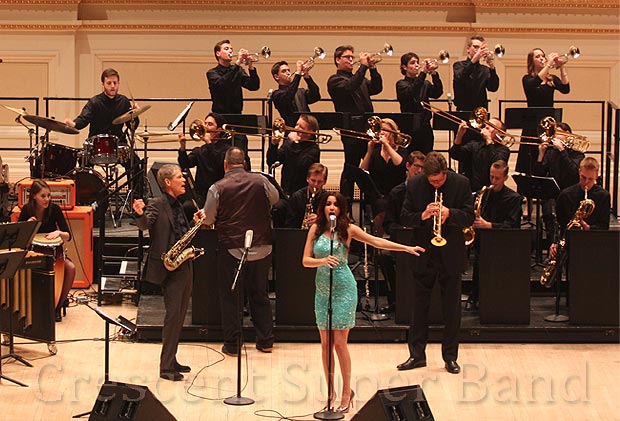
Utah high school band performs in Cuba
The Crescent Super Band, comprised of more than two dozen Utah high school musicians who play well beyond their years, has performed from Utah to Carnegie Hall to the Netherlands.
This spring the band played a gig someplace that, for the longest time, has been a no man’s land for Americans — Havana, Cuba.
The big band, based in American Fork, went at the invitation of the Fiesta Del Tambor, the Festival of the Drum.
“We came down there and played swing charts, and that’s not something that they’re used to but they loved it,” said Superband trombonist Mick Simkins. “They were screaming and they were dancing.”
“And we pretty much blew the Cuban people’s minds,” said trumpeter Daniel Gummow.
“Every time we get a visit from a band like the Crescent Super Band in our country, it’s an inspirational moment. It’s inspirational for the young people and an inspiration for all of us as musicians,” said Giraldo “Piloto” Barreto, a Cuban percussionist and festival organizer.
“It’s impactful and it feels like we’re doing something kind of important you know,” said band director Caleb Chapman.
The Super Band’s featured soloist was saxophonist Jeff Coffin, of the Dave Matthews Band.
“When I first invited myself to come with Caleb to Cuba,” Coffin said, laughing, “which is true. When I found out he was coming to Cuba, I said ‘you should take me,’ and he agreed to it. I was sort of kidding, but I was glad he said yes.”
Coffin, who frequently collaborates with Chapman and the band, booked Cuba’s state-run Abdala recording studio, where he worked on an album with the Super Band and some of Havana’s best musicians.
“The musicians there are absolutely world class, and a lot of that stems from the fact that to get out of Cuba we had a couple options, you know, baseball or music,” Chapman said.
One of the band’s most memorable performances was in a classroom, at the Escuela Nacional de Musica, a national performing arts high school in Havana.
The Cuban students performed for the Americans, the Americans played for the Cubans, and then they jammed together.
“And in that instance those barriers of language just fell apart,” Chapman said.
“It was like a light switch flipping. As soon as these kids were playing music, our kids felt a connection,” he said. “We try to put people in boxes and define what they believe and at the end of the day we’re all just trying to do the same thing.”
Chapman said all proceeds from the album will go to the school in Cuba. Students there, he said, as talented as they are, have a hard time finding decent instruments.
(From: The Cuban Handshake)


